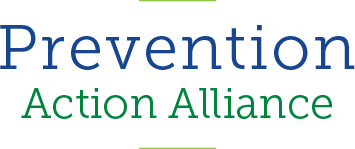
Gambling is the act of taking part in an activity—usually a game—where you risk something of monetary value on the chance of winning something. Gambling stimulates similar reward centers in the brain that using drugs activate. Like drug use, gambling is also addictive, and continuing to gamble despite suffering serious consequences is problem gambling. Prolonged problem gambling can result in disordered gambling, which can harm the gambler and loved ones.
Warning Signs of Problem Gambling
Anyone who gambles is at risk of developing a gambling disorder. Problem gambling is gambling that continues despite adverse effects. Like other diseases, gambling addiction has symptoms that can be observed. While everyone’s addiction may appear differently, here are common signs of problem gambling:
- Borrowing for gambling
- Lying about time or money spent on gambling
- Hiding time spent gambling or bills and unpaid debts
- Restlessness or irritability when not gambling
- Spending a lot of time thinking about or planning to gamble
- Exaggerating wins or minimizing losses
Anyone who gambles can become addicted to problem gambling. If you’re concerned about you or someone you know, get help at gamblinghelpohio.org or call the Ohio Problem Gambling Helpline at 1-800-589-9966.
Remember to Pause Before You Play
Follow these healthy tips to keep your betting habits responsible:
- Track your time
- Set limits on the time and money spent gambling
- keep gambling a recreational and social activity
- have hobbies outside of gambling
- know that everyone loses over time
- Mind your money
- Play for entertainment, not income
- gamble only with money set aside for entertainment
- never borrow money to play
- bet only what you can afford to lose
- Enjoy the game
- Never gamble when stressed, depressed, or in recovery
- Don’t play to escape
- Avoid mixing gambling with alcohol and other substances
- Understand that knowing more about a game won’t ensure a win
- Realize when to walk away
- Know the risks before you bet
- Know when to quit and don’t chase your losses
- Know what’s legal to play in your area
- Know where and when to get help
- Get more tips at pausebeforeyouplay.org.
If you’re concerned about you or someone else, get help at findtreatment.gov.
